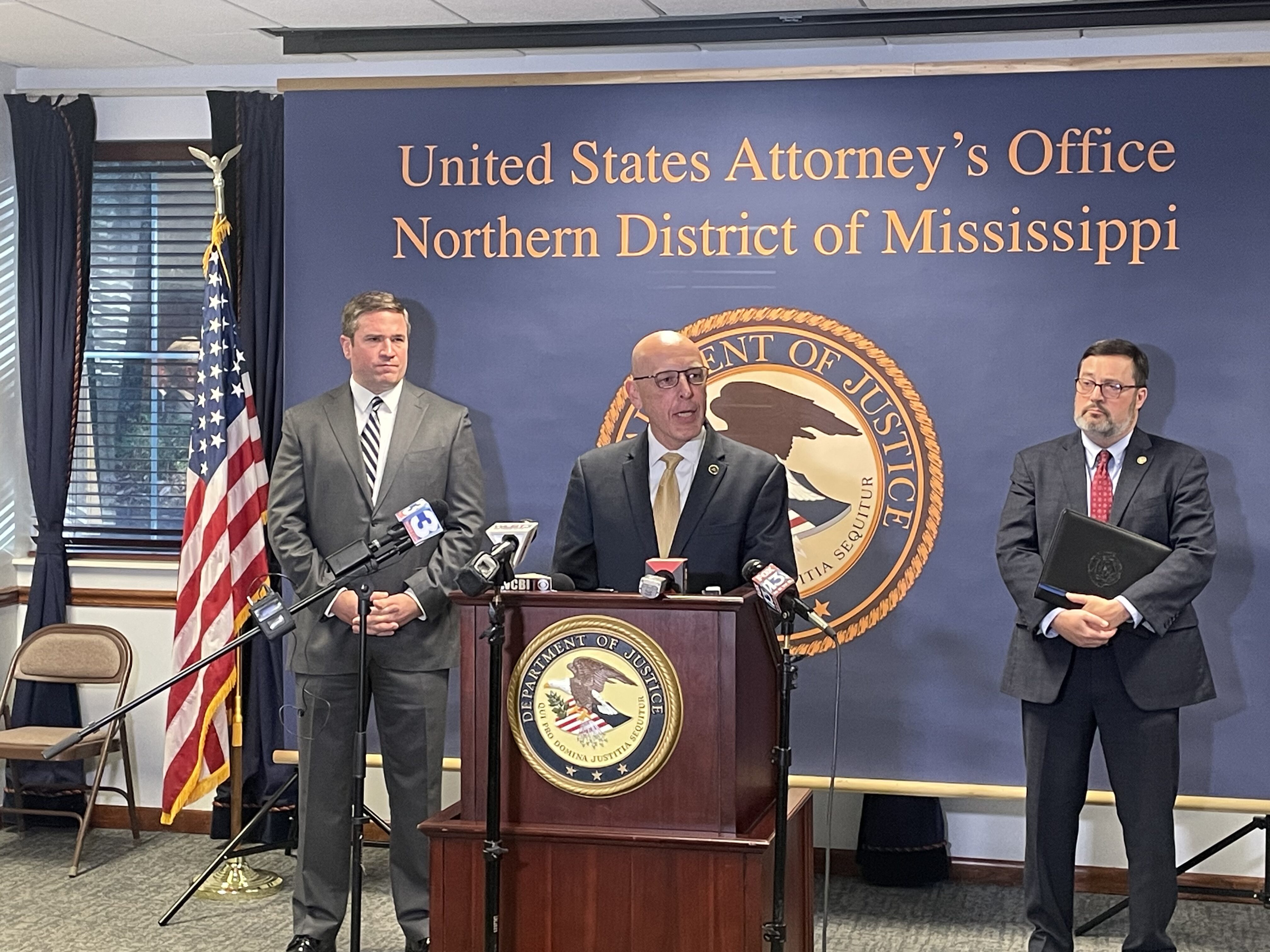
Mafia hitman Gregory Scarpa Sr. pocketed millions from drug dealing, donned a seven-carat pinky ring and shot to death so many people that he stopped counting at 50.
Oh, and he helped the FBI solve who killed Mississippi NAACP leader Vernon Dahmer Sr.
Hollywood plans to release a movie next year on Scarpa’s role in the Dahmer case, “By Any Means,” starring Mark Wahlberg as the mobster.
The film’s producer, Alex Lebovici, who attended the 100th birthday of Dahmer’s widow, Ellie, in June, said the filmmakers are portraying Dahmer as the family man and brave NAACP leader he was.
Dahmer’s daughter, Bettie, cooperated with filmmakers and watched them shoot scenes in Georgia. “The way the movie is portrayed, it’s not about Vernon Dahmer, it’s about Gregory Scarpa,” she said. “I have no problem with it.”
Her brother, Dennis, worries that audiences will wrongly associate his right-thinking father with the rotten mobster. “His legacy deserves to be told truthfully about who he was,” he said, “and not intermeshed with fictional characters and a vigilante justice storyline that did not happen.”

The Dahmer family regularly meets with students on the Sojourn to the Past tours to tell Vernon Dahmer’s story. Sojourn Executive Director Jeff Steinberg said he hopes publicity surrounding the film will encourage people to learn more about Dahmer. “He’s a true American hero who belongs in our history books,” he said. “He and his family inspire us all.”
On Jan. 10, 1966, a day after Black citizens learned they could pay their poll taxes at Dahmer’s store north of Hattiesburg, Klansmen firebombed his store and home north of Hattiesburg. Dahmer grabbed his shotgun and fired back at the Klansmen so that his family could escape.
The flames seared his lungs. That night at the hospital, as he neared death, a reporter asked why he had continued to push for voting rights, knowing it might cost him his life. Dahmer replied, “If you don’t vote, you don’t count.”
A few weeks later, his voter registration card arrived. He had fought his whole life for the right of all Americans to be able to vote, but he had never been able to cast a ballot himself.
In 1964, Joseph Sullivan, known by fellow agents as a by-the-book inspector, headed up the FBI’s investigation into a different Mississippi case, the KKK’s killings of three civil rights workers, James Chaney, Andrew Goodman and Michael Schwerner, which became known as the “Mississippi Burning” case or MIBURN for short.
But as agents closed in on members of the White Knights of the KKK in 1966, they became targets. Armed Klansmen shot out agents’ windows, and one agent found a rattlesnake in his car.
Roy K. Moore, the former Marine and head of the FBI in Mississippi, decided to fight fire with fire, according to former agents. He sent in a request to the FBI to use informant NY-3461 for his operation in Mississippi.
That informant was Scarpa, who carried the nickname, “The Grim Reaper,” because of how many people he killed for the Colombo crime family. He had managed to dodge a bank robbery charge by becoming an FBI informant.
In January 1966, Scarpa and an FBI agent entered Byrd’s Radio & TV Service in Laurel, Mississippi. Inside they found the bug-eyed owner, Lawrence Byrd, a suspect in Dahmer’s killing. Scarpa and the agent bought a TV and asked for Byrd’s help loading it.
Once there, Scarpa and the agent shoved Byrd into the car and hauled him to a remote area, where the mobster pistol-whipped him. After that, Byrd gave the FBI a 22-page confession, which identified Cecil Sessum as an exalted cyclops in the White Knights.
Sessum confessed, too, describing how he and other armed Klansmen pumped gasoline into a dozen jugs before heading to the Dahmer home. He said the only reason he confessed was that agents beat him, made him kneel on Dahmer’s grave and put a pistol to his head. The FBI denied the claim, and the court upheld his conviction.

Juries ultimately convicted four men — Sessum, Byrd, William Thomas Smith and Charles Clifford Wilson — on murder or arson charges. Mississippi governors freed them early.
It wasn’t until 1998 that Imperial Wizard Sam Bowers was convicted of ordering the attack on Dahmer. Bowers died in prison in 2006 while serving a life sentence.
As for Scarpa, he remained a top FBI informant for much of the rest of his life. He ratted on rivals while rubbing out mob foes.
The new movie opens with Scarpa beating KKK leader Edgar Ray Killen with a baseball bat to learn the location of the bodies of the civil rights workers.
Scarpa told a similar story before his death that ABC News and other news outlets have published.
Except former FBI agents say it isn’t true. They say the revelation of the bodies’ location actually came from Mr. X, a Mississippi highway patrolman who knew the Klansmen and told Inspector Sullivan that the bodies were buried in the Old Jolly Dam. Four days later, agents found the bodies there.
In 2007, Scarpa’s girlfriend, Linda Schiro, repeated his claim, but the details she shared — Scarpa tracking down a Klansman who sold TVs, buying a TV set and threatening to kill him — describe what Scarpa did in the Dahmer case.
As for the new movie on Scarpa, Lebovici said the script by Sascha Penn and Theodore Witcher, based on the book “Deal with the Devil: The FBI’s Secret Thirty-Year Relationship with a Mafia Killer” attracted him to the project.
The screenplay appeared on the Black List, a compilation of “most-liked” scripts by film executives that had yet to be produced. “We fell for the material,” Lebovici said. “We thought it was extraordinarily compelling, such a phenomenal story.”

Dahmer’s son, Dennis, had a different reaction. He finished about a third of the script before stopping, he said. “It’s fiction. They’re creating a Black FBI agent that didn’t exist.”
After J. Edgar Hoover began directing the FBI in 1924, he fired what few female special agents there were and kept the FBI Academy from admitting Black men until 1962.
Lebovici said the Black agent portrayed in the film is a composite character, who grew up in Mississippi before moving to Chicago. When the agent returns to Mississippi, “he’s relegated to the file room, but he’s got a relationship with the Dahmers.”
In the script, the FBI assigns the agent to work as a driver for Scarpa, and the two team up to work on the Dahmer case.
Lebovici said producers plan to show the film to possible distributors next year.
Through the movie, he said he hopes viewers can glimpse the hatred of these days and wrestle with the moral question: “Is violence justified in moments like this?”
Over the past few years, this nation has seen an increase in assassinations and other political violence, he said. “Things are getting out of control. It’s very relevant to what’s going on right now.”































